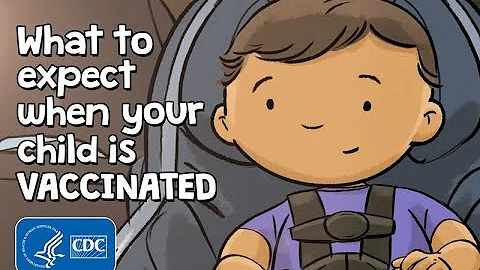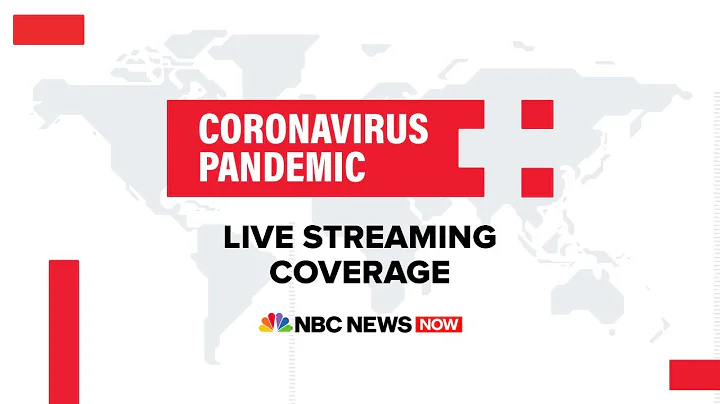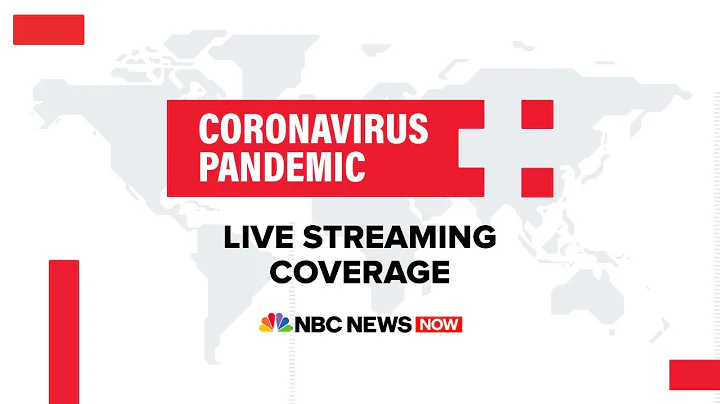
Today, let’s talk about baby vaccinations, which must be a topic that many new mothers and fathers are more concerned about.


[TIPS] The vaccines listed in this article are all free vaccines that children must receive for free (i.e., the free vaccines that infants and young children are stipulated by the state), while the second-class vaccines such as "hand, foot and mouth disease" are all vaccines that are paid for at one's own expense and on a voluntary basis. , are not included in this article. Also, do not compare it with the price of self-paid medicine or the price of imported medicine.

1 Give your baby a bath in advance
You can give your baby a bath the day before vaccination or in the morning before going for vaccination. On the day of vaccination, it is best to wear clean and loose cotton clothes for the baby, which can easily expose the skin and facilitate the doctor to administer the vaccine.

2. Bring your documents with you
Before going out, remember to remind yourself: Don’t just take your baby with you empty-handed! We need to bring a green book called " Child Vaccination Certificate " , as shown below (of course the vaccination certificates in each region will be slightly different). This is the identity certificate for the baby's vaccination. In the future, we will need to check when the baby is admitted to daycare, kindergarten, and school.

3. Inform the doctor of the baby's physical condition
If the baby has any contraindications, let the doctor know accurately so as to protect the safety of the baby and prevent the baby from being allergic to certain substances and causing irreversible consequences of mistaken vaccination. If you have any symptoms of discomfort recently, you should also inform your doctor in time to see if it is suitable for vaccination that day.

4. Special circumstances or physical discomfort need to postpone vaccination.
If the newborn has special circumstances, suffers from tuberculosis, acute infectious diseases, nephritis, heart disease, eczema, immunodeficiency, skin sensitivity, etc., vaccination needs to be postponed. For details, you can consult first Call the doctor. If your baby has a cold or fever, vaccination should also be postponed.

5. After the injection, press the needle hole in time.
After vaccination, you should hold the needle hole with a cotton swab or cotton ball for 5 minutes. The cotton swab can be removed only when there is no bleeding. Do not rub the vaccination site.

6. After vaccination, you should observe it for 30 minutes before leaving.
Do not go home immediately after the baby is vaccinated. You should rest at the vaccination site for about 30 minutes to observe whether the baby has any symptoms of discomfort. If the baby has high fever and other adverse reactions, also You can ask a doctor for diagnosis and treatment in time.


1. Get more rest
After vaccination, try to let your baby rest properly and don't let him play too crazy or be too tired.

2. Drink more water
After vaccination, the baby should drink more water and keep warm to prevent triggering other diseases and reduce the possibility of fever.

3. You cannot take a shower on the day after vaccination.
This is why Hot Mom previously suggested that mothers and fathers should take a shower before going to get vaccinated. Because after vaccination, the baby cannot take a bath within 24 hours to avoid wound infection. Of course, you should also pay attention to the cleanliness of the baby's vaccination site to prevent local infection.

4. Precautions for different vaccines
Do not eat any warm or hot food or drinks within half an hour after oral polio vaccine. If induration occurs at the vaccination site after vaccination with DTP vaccine, hot compresses can be applied from the second day after vaccination to help the induration subside.

5. There will be mild reactions after vaccination.
If your baby has slight fever, loss of appetite, irritability, and crying after vaccination, don’t worry. These reactions are normal and will usually disappear automatically within a few days. But if the reaction is strong and lasts for a long time, you should take your baby to the hospital immediately. We can see below for details.


After your baby is vaccinated, abnormal vaccination reactions may occur. Abnormal reactions refer to qualified vaccines that cause tissue, organ, and functional damage to the recipient's body during or after vaccination.If you only have low fever, headache, mild diarrhea, and occasional rash, they usually disappear on their own within 2-3 days. They are normal reactions and there is no need to worry.
However, if the following symptoms occur: allergic rash, allergic purpura, anaphylactic shock and syncope, they are called abnormal vaccination reactions, and emergency symptomatic treatment measures are required.
1. Allergic rash
The main symptoms of allergic rash are urticaria, rashes of varying sizes, light red or dark rash. It usually appears within hours or days after the baby is vaccinated.
2. Henoch-Schonlein purpura
The main symptoms of Henoch-Schonlein purpura are rashes or bleeding spots of varying sizes, accompanied by joint fever, swelling and pain, and sometimes symptoms of digestive tract allergies. It usually appears within hours or days after the baby is vaccinated.
3. Anaphylactic shock
The main symptoms of anaphylactic shock are headache, dizziness, pale complexion, cold sweat, drop in blood pressure, and signs of shock. It usually appears within a few minutes after the injection.
4. Fainting
The main symptoms of syncope are palpitation, weakness, cold limbs, nausea and vomiting in mild cases, which can be recovered in a short time; pale complexion, nausea, vomiting, cold sweats, cold limbs, and even coma in severe cases.
5. Possible adverse reactions of various types of vaccines:
A. Adverse reactions of BCG vaccination
Clinical data show that a common complication after BCG vaccination is purulent lymphadenitis. If the inflamed lymph nodes swell no more than 1 cm, it is a normal reaction and does not require treatment. If the swelling exceeds 1 cm, softens, and does not go away on its own, you need medical attention.
B. Adverse reactions of DTP vaccination
Fever and local reactions often occur after vaccination. Some babies have fever reaching 39℃ or above after vaccination; some have obvious redness, swelling, induration or pain at the injection site, which lasts for more than 48 hours; in some cases, Severe babies may also have convulsions or neurological symptoms. Babies who develop high fever, convulsions and neurological symptoms should seek medical attention promptly.
C. Adverse reactions to measles vaccination Adverse reactions to measles vaccination
Measles vaccination generally rarely causes serious reactions. About 5% to 15% of babies start to have high fever 6 days after vaccination, which can last for more than 5 days. It is best to consult a doctor. deal with.
The above are some special adverse reactions. Once your baby develops these symptoms, you should seek medical attention immediately!
Of course, generally speaking, the above situation will not happen to most babies. However, most babies will still have some common adverse reactions after vaccination.
Common adverse reactions
1. Fever
Many babies will have some symptoms of fever after vaccination. This is a common symptom.
First of all, we should take a look at the degree of heat. Most babies may have low fever (body temperature below 38.5°C), no obvious other discomfort, and are in good mental state. No special treatment is needed in this case, because this kind of fever is a normal reaction and will disappear in a short time. If necessary, Appropriately use some physical cooling methods. However, if you have a high fever (over 38.5°C) and are accompanied by general discomfort, you need to go to the hospital immediately and ask a doctor for diagnosis and treatment.
Generally speaking, fever after vaccination generally lasts very short and is a reactive fever, so antibiotic treatment is not necessary. If the fever persists or tends to gradually increase, you should consider whether there are other infections during this period and you need to see a doctor for diagnosis and treatment.
2. Local itching or redness and swelling
After your baby is vaccinated, there may be local itching or redness and swelling. Do not let your baby scratch it. Otherwise, local infection may suppurate, leading to infectious fever. If this happens, you need to see a doctor for treatment.
So, why does a baby have a fever after being vaccinated?
After a baby is vaccinated, a fever occurs, which is a normal immune system response of the human body. Fever is the process by which your baby's body produces antibodies. Generally, fever after vaccination lasts for about three days, and the body temperature will not be very high.If the baby has a fever for more than three days and the temperature is very high, then as mentioned above, take the baby to the hospital for diagnosis and explain to the doctor that the baby has been vaccinated, which will be helpful for the doctor to prescribe medication.
Vaccination shots are all made of bacteria, viruses or their toxins. Although these pathogenic factors have been inactivated or attenuated, they are all heterosexual proteins or antigenic substances, which have certain harmful effects on the human body. Stimulating effect. Therefore, after a baby is vaccinated, it may cause local or systemic reactions of varying degrees, with fever being the most common reaction. Moreover, as age increases and the number of vaccinations increases, fever will become more intense. Therefore, for most babies, low-grade fever is more common.
How to reduce the fever of a baby after vaccination?
1. Wear less clothes to help your child dissipate heat.
Our traditional concept is that as soon as a child has a fever, we should wrap him up tightly with clothes and quilts to "force" the sweat out. In fact, this does not apply to babies. of. When a baby has a fever, he or she will shiver, and parents may think that the baby is chilling. In fact, this is a physiological spasm caused by a rise in body temperature. Therefore, "heat dissipation" is a serious matter.
2. Help children physically cool down:
(1) Cold wet compress on head: Soak a soft towel with 20℃-30℃ cold water and squeeze it slightly so that it does not drip. Fold it and place it on the forehead. Change it every 3-5 minutes.
(2) Head ice pillow: Put small ice cubes and a small amount of water into an ice bag until it is half full, drain out the air in the bag, press the mouth of the bag tightly, and place it on the pillow if there is no water leakage. Or you can use the "Bingbao stickers" available on the market.
(3) Wipe with warm water or bath with warm water: Use a warm and wet towel to wipe the child's head, armpits, limbs or take a warm bath. Scrub the skin more to promote heat dissipation.
(4) Alcohol wipe bath: suitable for cooling down high heat. Prepare 200-300 ml of 20%-35% alcohol and rub bath on the limbs and back. (Someone asked, isn’t it said that alcohol baths have been banned? It is worth noting that what is banned is high-concentration “medical alcohol”! The ethanol concentration of medical alcohol is 75%. Use it to wipe the body to cool down when you have a high fever. You need to Dilute it to 25%-50%, which is roughly equivalent to one part medical alcohol plus the same amount of water. Because the alcohol concentration is too high, it will not only irritate the skin, but also absorb a lot of water from the epidermis, so what is said here is "20%-35% alcohol" "! I'm not asking you to use "medical alcohol" directly! In addition, physical cooling is only an emergency measure. For children under 6 years old with high fever, Hot Mom still advocates that they should see a doctor in time and use drug cooling methods. To achieve the purpose of cooling, rather than physical cooling, the specific instructions shall be subject to the doctor's instructions)
(5) Add sufficient water and do not take medicine casually. Breathing speeds up during high fever, and sweating causes the body to lose a lot of water. Therefore, parents should give their children enough water when they have a fever to increase urine output, which can promote the elimination of toxins from the body.
Can my baby take medicine if he has a fever after vaccination?
Regarding medication, Hot Mom recommends not to be blind. If you really have a high fever that doesn't go away, you should see a doctor first. You can take medicine under the doctor's advice. You should not take medicine on your own, especially for newborn babies.
In summary, babies may have fever and local redness and swelling after vaccination. This is a normal stress reaction after vaccination. Mothers and fathers do not need to worry. But you should also observe your baby carefully, especially within 24 hours after vaccination, to see if the baby is accompanied by other physical discomforts. If an allergy is found, you should be cautious when inoculating this vaccine next time, and inform your doctor of this situation so that the doctor can determine whether you need to stop vaccination or change to another dosage form. But most babies basically don’t have any adverse reactions after being vaccinated, so mothers and fathers don’t need to be too panicked.

Vaccination is actually a method of artificial automatic immunization, applying bacterins, vaccines, toxoids and other preparations to the human body, so that the body can produce corresponding antibodies to fight against the invasion of certain infectious diseases. The purpose of our vaccinations is naturally to protect our babies from infectious diseases.
Of course, getting vaccinated does not mean that the child has entered the "safe box" and will be free from diseases. After all, human infection with diseases is an extremely complex process, involving factors such as one's own state, disease prevalence, degree of infection, and whether the production of antibodies is sufficient. , whether the effect is reduced and other external factors.
Therefore, don’t think that everything will be fine after getting vaccinated. The key to preventing your baby from getting sick is only by maintaining good living habits, helping your baby change clothes in a timely manner, and reasonably arranging the baby's living environment (for details, please read the two secret diaries of Hot Mom).
Finally, Hot mother wishes every baby to be healthy and stay away from diseases!






















